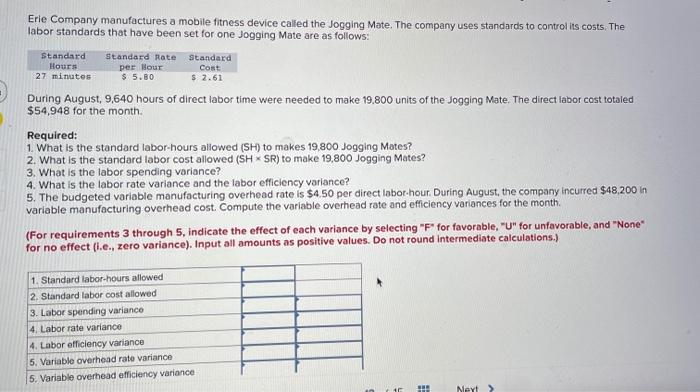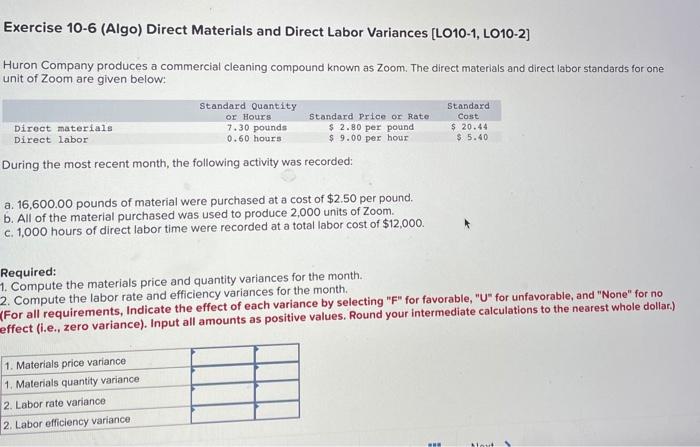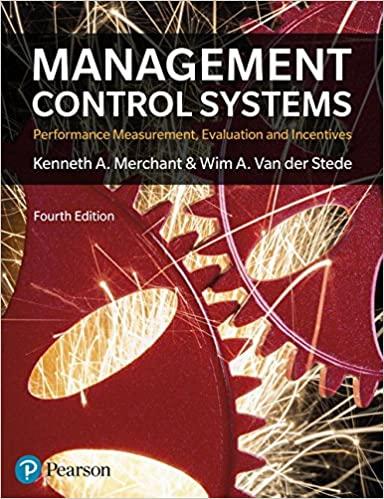Hours Erie Company manufactures a mobile fitness device called the Jogging Mate. The company uses standards to control its costs. The labor standards that have been set for one Jogging Mate are as follows: Standard Standard Rate Standard per Hour Cost 27 minutes $ 5.80 $ 2.61 During August, 9,640 hours of direct labor time were needed to make 19.800 units of the Jogging Mate. The direct labor cost totaled $54,948 for the month. Required: 1. What is the standard labor hours allowed (SH) to makes 19,800 Jogging Mates? 2. What is the standard labor cost allowed (SHSR) to make 19,800 Jogging Mates? 3. What is the labor spending variance? 4. What is the labor rate variance and the labor efficiency variance? 5. The budgeted variable manufacturing overhead rate is $4.50 per direct lobor-hour. During August, the company incurred $48,200 in variable manufacturing overhead cost. Compute the variable overhead rate and efficiency variances for the month. (For requirements 3 through 5, indicate the effect of each variance by selecting "F" for favorable, "U" for unfavorable, and "None" for no effect (i.e., zero variance). Input all amounts as positive values. Do not round Intermediate calculations.) 1. Standard labor-hours allowed 2. Standard labor cost allowed 3. Labor spending variance 4. Labor rate variance 4. Labor efficiency variance 5. Variable overhead rate variance 5. Variable overhead efficiency variance Next > Exercise 10-6 (Algo) Direct Materials and Direct Labor Variances (L010-1, LO10-2) Huron Company produces a commercial cleaning compound known as Zoom. The direct materials and direct labor standards for one unit of Zoom are given below: Standard Quantity or Hours Standard Price or Rate Direct materials 7.30 pounds $ 2.80 per pound Direct labor 0.60 hours $ 9.00 per hour During the most recent month, the following activity was recorded: Standard Cost $ 20.44 $ 5.40 a. 16,600.00 pounds of material were purchased at a cost of $2.50 per pound, b. All of the material purchased was used to produce 2,000 units of Zoom. c. 1,000 hours of direct labor time were recorded at a total labor cost of $12,000. Required: 1. Compute the materials price and quantity variances for the month. 2. Compute the labor rate and efficiency variances for the month. (For all requirements, Indicate the effect of each variance by selecting "F" for favorable, "U" for unfavorable, and "None" for no effect (i.e., zero variance). Input all amounts as positive values, Round your intermediate calculations to the nearest whole dollar.) 1. Materials price variance 1. Materials quantity variance 2. Labor rate variance 2. Labor efficiency variance








